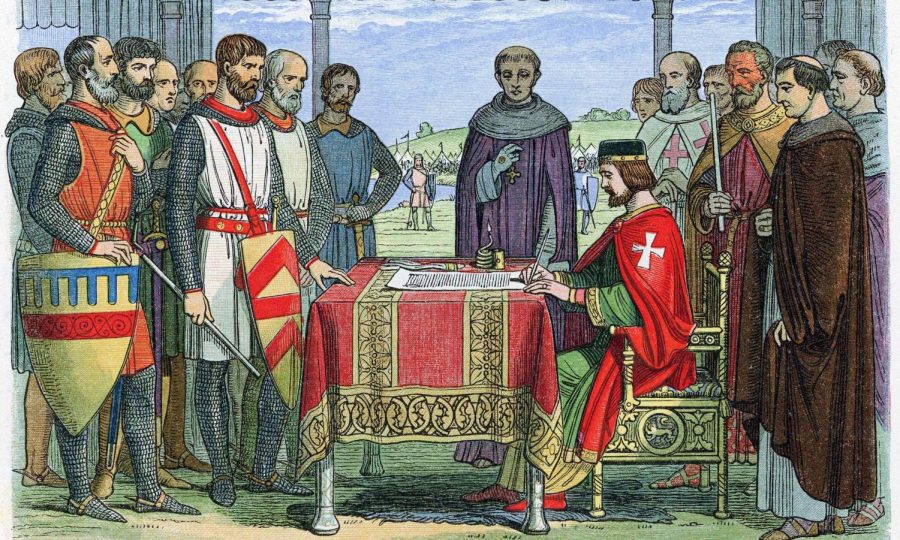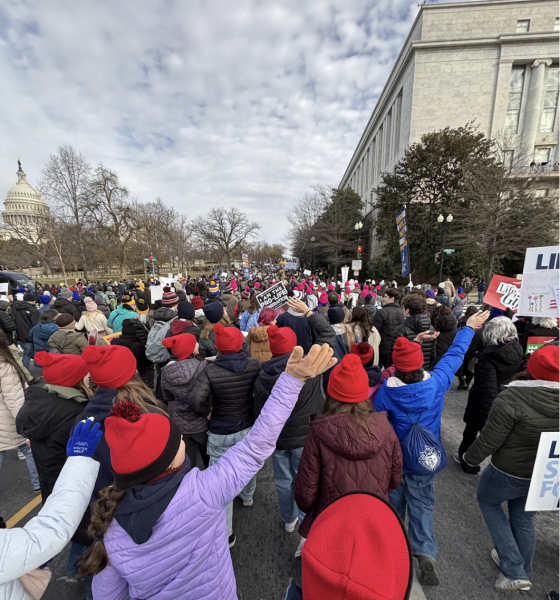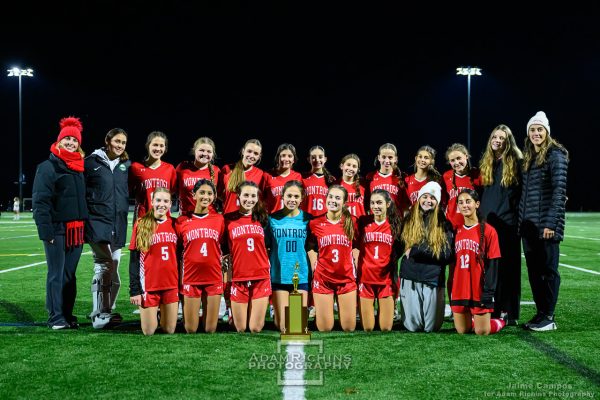The Magna Carta Speech
The barons force King John to sign the 1215 Magna Carta.
*This is a speech I wrote out for a speech tournament in October.*
Have you ever felt that your government violated your rights by overstepping the boundaries of its power? The barons of the thirteenth century certainly did.
King John of England ruled through “force and will,” imposing heavy taxes and ignoring due process of law. England’s wealthiest men — the barons — felt that by doing this, John was violating their God-given rights by overstepping the boundaries of his power. They drafted a document that would protect their rights by limiting the powers of the king and his officials. They called this document the Magna Carta. Since we, like the barons, are subject to the rules and demands of those governing us, we find ourselves asking the same questions the barons did 800 years ago. What rights are the governed entitled to? What should and shouldn’t the government be able to control? To understand the reasons for John’s oppressive actions, we must first look at the historical context of twelfth-century England.
John’s predecessors Henry the Second and Richard the Lionheart gained many lands for England in France. In 1199 when Richard the Lionheart died, his younger brother John took the throne. John quickly lost all of England’s lands in France. In order to reclaim these lands, he needed money. He got this money by imposing heavy taxes on the barons.
One tax was called scutage. Scutage was the military service the barons owed to the king. Normally, the barons would provide the serfs that worked on their estate. However, John could not rely on unskilled serfs to fight the strong French. Instead, he charged the barons a fee which he used to hire skilled mercenaries. John increased this tax by a significant amount. John also extended royal forest lands. Anyone caught hunting in royal forest lands would owe a fee to the king. The problem was that royal forest lands were not marked. A baron out on his daily hunting trip could accidentally happen to find himself within royal forest lands and have to pay a fee to the king. Clearly, John was looking for any excuse to charge the barons money. Many barons found themselves financially ruined by these heavy fees.
The barons also felt that John’s fundraising sold and delayed their right to justice. John sold royal writs. Anyone accused of a crime could buy a piece of paper from the king that prevented them from being brought to court. The barons saw this as John selling their right to justice. There were four courts in 1215 England. They periodically circulated throughout the country. A baron living in the southern part of England when the courts were stationed in the northern part of England could not seek justice at the time. The barons saw this as their right to justice being delayed.
The barons also felt that royal officials held too much power and were corrupt. The exchequer was the royal official responsible for collecting taxes. If a baron could not pay what the exchequer demanded, their lands would be seized, and they would be imprisoned. It was not uncommon for an exchequer to demand more money than the barons owed to the King so the exchequer could keep some money for himself.
John found himself getting into a major dispute with the pope. The Archbishop of Canterbury had just died. John felt he had the royal authority to appoint the new archbishop while the pope felt he had the papal authority to appoint the new archbishop. Pressuring the pope to let him choose, John seized church lands and imprisoned church officials, violating a coronation charter he agreed to. In response, the pope excommunicated John which entailed inviting a foreign monarch to take the throne.
Meanwhile, the barons were starting to voice their dissent of John’s rule. Fearing rebellion, John started seizing barons’ lands and imprisoning any who showed dissent. Since the barons found a powerful ally in the King of France, John looked to find one in the pope. In order to reconcile with the pope, John granted him supreme sovereignty over the country and let the pope’s choice be archbishop. In response to John’s latest crackdowns, the barons seized London. This put enormous pressure on John because London was where the royal treasury was. Without London, John was bankrupt. Hesitant to provoke the French, John decided his best bet to get London back was by negotiating a peace. On June 15, 1215, King John and the barons agreed to meet 23 miles west of London at Runnymede.
The barons would only agree to peace on their terms. They drafted a document called the Magna Carta. It started by addressing the king’s power to raise and institute taxes as he pleased. They designated maximum amounts of scutage and inheritance taxes kings could charge, demanded royal forest lands be marked, and prevented the king from imposing a new tax without consulting a group of barons. It also granted individual cities “free customs,” as the barons felt the king should not monitor the trade they relied on.
The Magna Carta also protected the barons’ rights to justice, security, and property by limiting the powers of the king and his officials. It prevented the king from selling, delaying, and denying the right to justice. Clause 21 states: “no Baron shall be fined except by the judgment of his peers.” Clause 39 adds: “No free man shall be seized, exiled, or dispossessed without the lawful judgment of his peers.” These clauses fulfilled the barons’ wish of being judged by their peers instead of royal officials. This transferred legal power from the king’s men to the barons.
These clauses protected the barons’ right to justice by limiting the powers of the king and royal officials. Clause 38 of the Magna Carta states: “no royal official shall place a man on trial without credible witness of his guilt.” Without this clause, if a royal official didn’t like a baron for any reason, they could force the baron to go to trial where the baron would be at a disadvantage because those who had power in courts were also royal officials. This clause protected the barons’ security by limiting the powers of royal officials. Clause 30 prevented royal officials from taking the barons’ carts or carriages without their consent. This protected the barons’ right to property by limiting the powers of royal officials.
Another famous clause of the Magna Carta dealt with the rights of widows. King John would force widows to remarry foreign men to create alliances. The barons drafted a clause preventing John from forcing widows to remarry. This showed the hatred the barons had for John exercising control over their personal lives and laying limits on what the king could control.
The Magna Carta’s most powerful clause was its security clause. It designated a group of 25 barons to determine if the king’s actions violated the terms of the document. If they did, the barons had the authority to overthrow the king. The barons forced King John to seal this document under threat of death.
Soon after he sealed the Magna Carta, John became uncomfortable with the limits on his power. He went to the pope for help. The pope thought that the king’s authority was granted to him by God. To limit the powers of the king was to undermine the authority of God. The pope was horrified by this idea and used his papal supremacy to declare the document “null and void.”
Although the Magna Carta was quickly repealed, the rights it laid out such as judgment by peers, justice, security, and property inspired the founders of our government. Future generations who felt that their government was violating their rights looked back to the Magna Carta to determine what governments should and shouldn’t be able to control.
Gabriella Dansereau ’26, Staff Writer
26gdansereau@montroseschool.org










